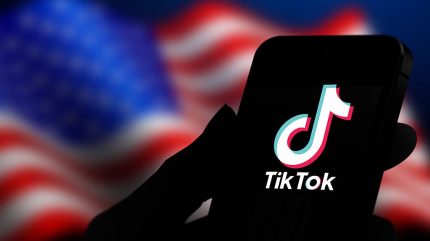
Social media and e-commerce platform TikTok, owned by Chinese company ByteDance, has been granted a 75-day extension to find a US buyer or leave the US market, where it claims to have 170 million users. While a deal was reportedly close to being approved last week, US President Donald Trump’s ‘reciprocal’ tariffs delayed the sale, which also has to be approved by China.
“We had a deal pretty much for TikTok – not a deal but pretty close – and then China changed the deal because of tariffs,” Trump said to reporters as he exited Air Force One last night (6 April). “If I gave a little cut in tariffs they would have approved that deal in 15 minutes, which shows the power of tariffs.”
ByteDance issued a statement on Friday saying the company “has been in discussions with the US government regarding a potential solution for TikTok US. An agreement has not been executed. There are key matters to be resolved. Any agreement will be subject to approval under Chinese law.”
There is an eccentric list of interested buyers in TikTok. These include Canadian businessman and Shark Tank judge Kevin O’Leary, Reddit co-founder Alexis Ohanian, billionaire Frank McCourt, and controversial YouTuber ‘MrBeast’ (whose real name is James Stephen Donaldson). Amazon also submitted a last-minute bid, a move which could be prevented by anti-trust regulators given that TikTok’s e-commerce platform is a major competitor to the online retailer.
However, the deal, which was reportedly close to going through before the tariff news, came from a consortium of US investors including Oracle, Blackstone and venture capital firm Andreessen Horowitz. The deal was not formally announced as Trump said the reciprocal tariffs on China stalled talks. The new rates take tariffs on Chinese imports, which were already at 20%, to 54%.
China, whose previous responses to Trump’s tariffs has been relatively light as it has tried to avoid escalation, has retaliated more aggressively this time, imposing an additional 34% tariff on all US goods.
Years of uncertainty for TikTok
Trump has gone back and forth on his views on TikTok. In 2020, he said he considered banning it over China’s handling of the pandemic. He even issued an executive order starting a formal process to get ByteDance to divest US interests or face sanctions. He later encouraged a proposal deal by Oracle and Walmart to take a major stake in TikTok, but the process dissipated amidst the change in administrations, and former President Joe Biden lifted the ban.
Biden then backtracked as he signed a law into Congress in 2024 requiring ByteDance to divest TikTok. Despite the bill having bipartisan support and Trump pursuing a similar effort during his first term, he heavily criticised the efforts from the Biden administration as he credited the app for helping him attract more young voters.
Since coming into power a few months ago, Trump has teetered between presenting himself as both the saviour of TikTok, a politically popular narrative given the app’s wide usage, and the protector of US national security, since he has not fully stopped Biden’s efforts to force ByteDance to sell to a US company.
Delaying the TikTok sale because of the tariffs is the latest example of how major tech companies with international presence can become bargaining chips in a new era of perpetual trade negotiations. In the UK, Prime Minister Keir Starmer is considering lowering taxes on US tech companies in order to secure tariff reprieves from the US.



